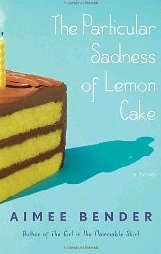
Thanksgiving weekend is friends and family time. Unfortunately for many, it is also put-up-with-emotional-abuse time. Most of us are aware of the signs of physical abuse but we often forget that the scars from emotional abuse, while invisible, can be much deeper and longer lasting.
What is emotional abuse? I went to Domestic Violence: The Facts for a list of behaviors (but not inclusive) that fall under the category of being abusive:
“Destructive Criticism/Verbal Attacks: Name-calling; mocking; accusing; blaming; yelling; swearing; making humiliating remarks or gestures.
Pressure Tactics: Rushing you to make decisions through “guilt-tripping” and other forms of intimidation; sulking; threatening to withhold money; manipulating the children; telling you what to do.
Abusing Authority: Always claiming to be right (insisting statements are “the truth”); bossing you around; making big decisions; using “logic.”
Disrespect: Interrupting; changing topics ; not listening or responding; twisting your words; putting you down in front of other people; saying bad things about your friends and family.
Abusing Trust: Lying; withholding information; cheating on you; being overly jealous.
Breaking Promises: Not following through on agreements; not taking a fair share of responsibility; refusing to help with child care or housework.
Emotional Withholding: Not expressing feelings; not giving support, attention, or compliments; not respecting feelings, rights, or opinions.
Minimizing, Denying and Blaming: Making light of behavior and not taking your concerns about it seriously; saying the abuse didn’t happen; shifting responsibility for abusive behavior; saying you caused it.”
If you experience any of these behaviors from people you are expected to spend time with during the holidays or anyone in your life – consider minimizing or eliminating time with this person(s). If the person is your spouse or someone that you must deal with every day go to counseling to gain clarity and coping skills.
No one should have to put up with abuse in any form. Emotional abuse is emotional terrorism.
This Thanksgiving, be grateful for the supportive and healthy relationships in your life, trust yourself and be thankful for the Wisdom present in your own heart.
You may also like Celebration of Family, Irish Heritage and Don’t Worry – Be Happy.


